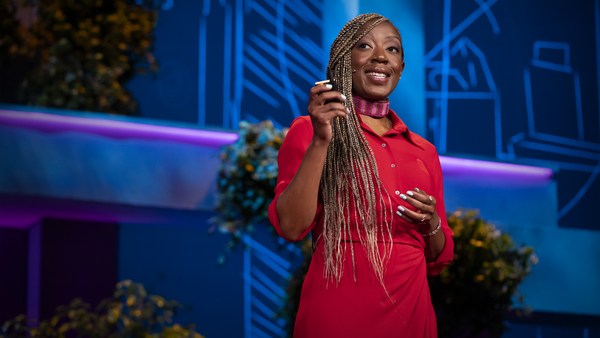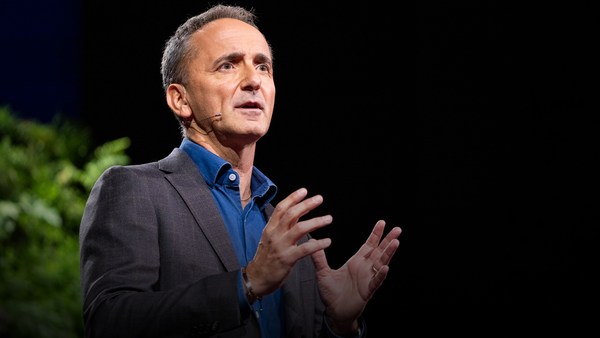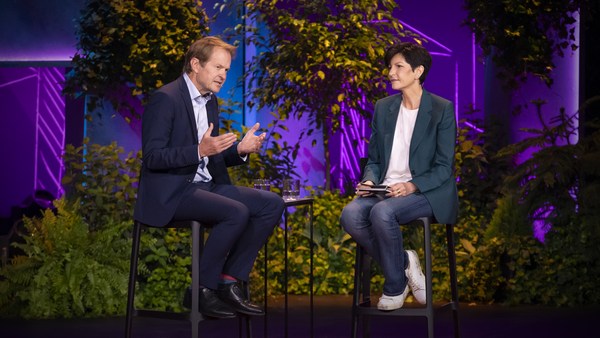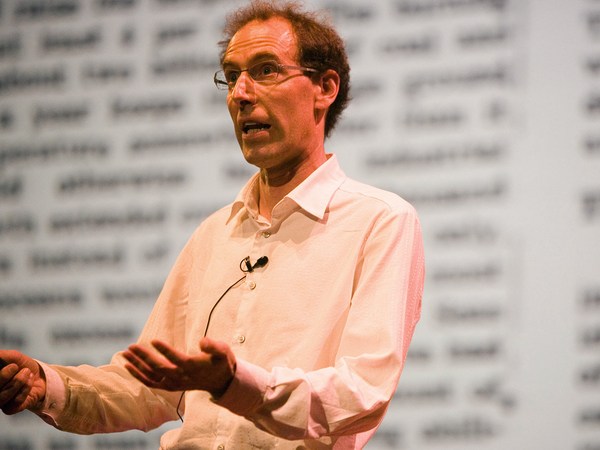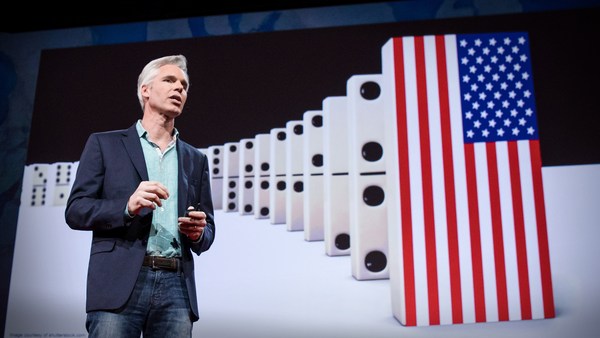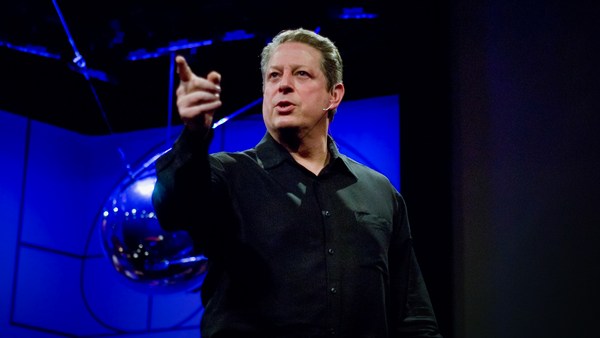Now when I was two years old, I moved to Greenland with my parents and my sister, and we lived there for seven years. It is quite a remarkable place to grow up as a child. I remember Greenland as a very tough environment. It was always cold, very dark, and there was lots of snow. Not green at all.
(Laughter)
I actually believe that the word "Greenland" is the first example of greenwashing in this world.
(Laughter)
Now, seven years in Greenland taught me that our lives largely depend on the forces of nature. And 50 years later, in April 2022, I had the opportunity to participate in an expedition to northeast Greenland, with 13 dogs, a dogsled and a tent. This time, I only stayed for seven days, but enough to see the big changes in nature. Normally, the temperature in northeast Greenland, in April, is around minus 20 degrees Celsius, but that week, we had days where the temperature was above the freezing point. You could almost hear the ice melting, in April. Wow.
So as I came back, I studied how much sea levels would rise if all the ice in Greenland would melt. I knew it was bad, but honestly, I didn't know it was that bad. Six to seven meters. I know now, and knowing is important, because when we know, we can do something. But between knowing and doing, there is choosing. By now, I think, we all kind of know. So the questions are: “What are we choosing?” And “What are we doing?”
If we want to avoid a climate disaster, we need much more radical leadership. Now, some companies have chosen -- actually, many companies have chosen -- to commit to net-zero emissions by 2030 or 2040, which is great news, but the progress is far too slow. CO2 emissions are still rising, and if we do want to avoid that climate disaster, I believe we need to be much more radical in our leadership.
(Cheers and applause)
When it comes to choosing, we need more courage. Our choices need to be based on what is necessary, not what seems possible right now. If we choose to pursue impossible big dreams, we spark the imagination of people, and the impossible becomes possible.
Like we did at Maersk in 2018, when we committed to zero-carbon shipping, without knowing how to do it. And when it comes to doing, we need much more collaboration. For more than 100 years, we've learned how to specialize and optimize our part of the value chain, but if we want the kind of change that is necessary, we need to reinvent the entire value chain based on zero carbon, not just a piece of it. At a time when some people talk about deglobalization, we need more global collaboration around sustainable technologies than ever before, not less.
It reminds me of the time in my youth when I played the trumpet in a symphony orchestra. It was a great experience, mostly because my fellow musicians played really, really well.
(Laughter)
Now if you want to change the music of a symphony orchestra, it really doesn’t make sense to ask the trumpets to play a different tune or the violins. You need a new sheet of music for all the musicians at the same time, and you might even need to replace some of the instruments.
Northvolt was created like that. The founders had the courage to reimagine a zero-carbon value chain for batteries, based on recycling. And as a new instrument, they invented a way to take back the raw materials in used batteries, and use them again and again and again. That is the kind of radical leadership we need. We need to have the courage to orchestrate the reinvention of the entire value chain, end to end, and we need to have massive collaboration to get it done in time.
And the good news? Well, from my experience with Maersk, and now Siemens and Northvolt, if you dream big and you have the openness for collaboration, this is not only a necessary set of conditions to be successful in the endeavor, it is also becoming a huge business opportunity at Northvolt. We have an order book of 55 billion dollars of green batteries,
(Applause)
an eight-year-old company.
And Siemens -- thank you.
(Cheers and applause)
And Siemens is achieving the highest growth rate since 20 years, because we are decarbonizing industrial and urban infrastructures in close collaboration with our partners. There are so many examples out there, but we need many, many more.
And that is what the TED Future Forum is all about. It's a growing community of companies whose leaders have the courage to reinvent for a sustainable future, and to share their stories, to inspire others to do the same. We invite you to join us. We invite you to play your beautiful instrument, in a symphony orchestra with some of the most courageous leaders in the world.
Thank you.
(Cheers and applause)
